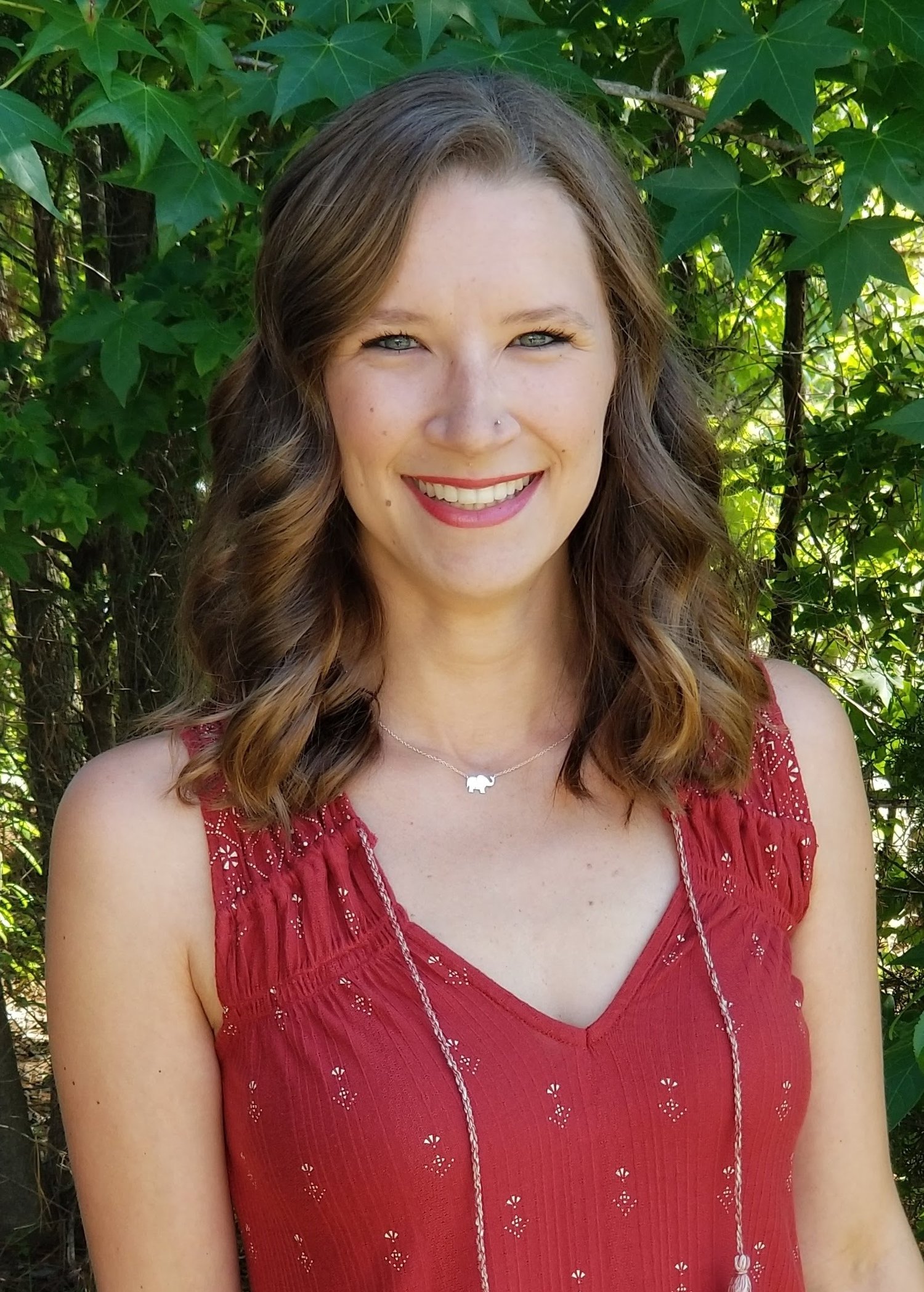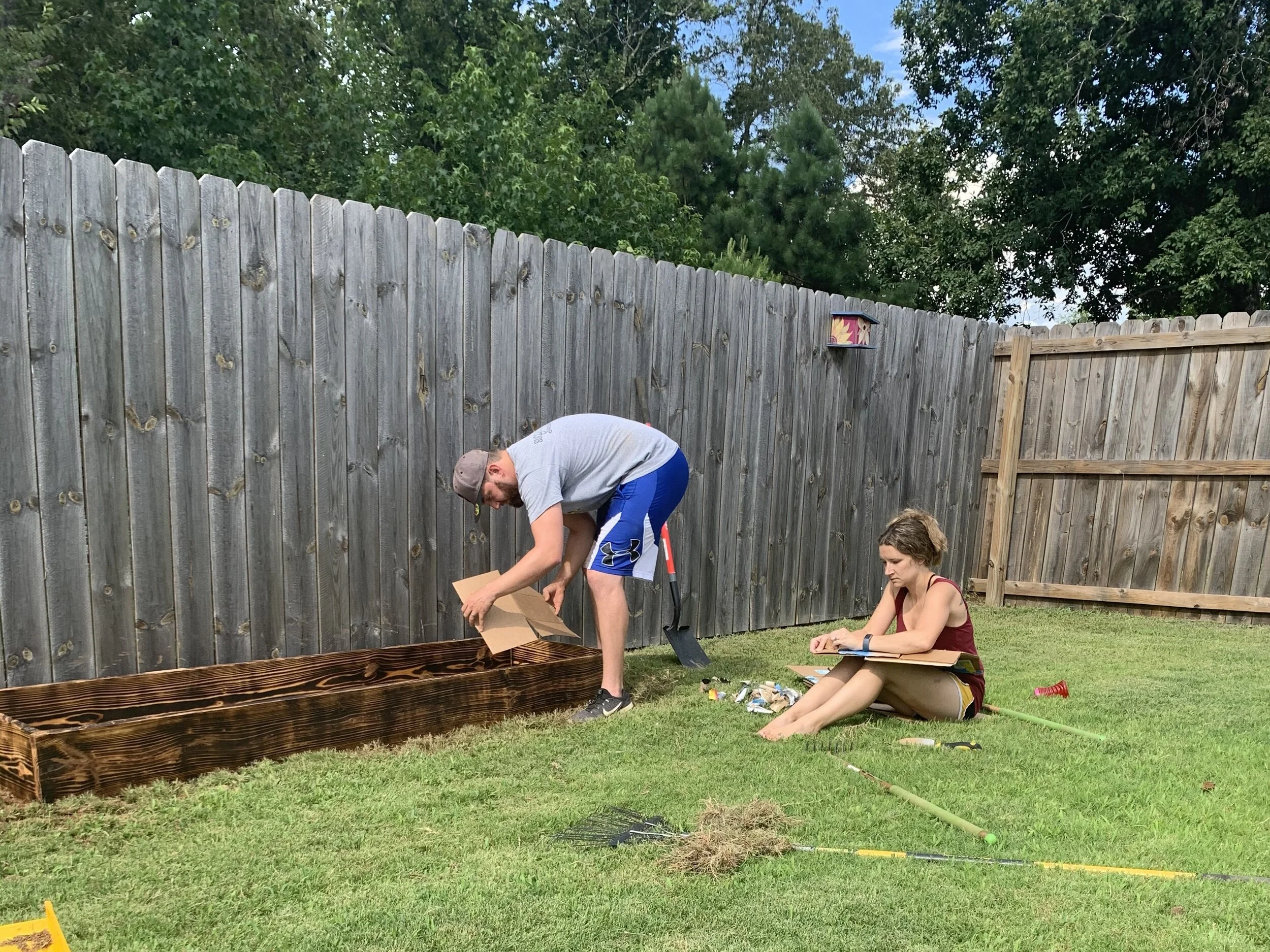This summer has been one of the most eventful, life changing seasons to date.
In addition to opening our home to foster care, we’ve also started the process of making a big lifestyle change: Zero Waste.
Zero Waste sounds super extreme, and in a lot of cases it totally is. There are some Zero Wasters who can fit a whole year’s worth of trash in a single mason jar. That’s not a current goal of ours. Our objective is to dramatically cut back on how much trash we produce, with Zero Waste being the “in a perfect world” scenario. We also want to have an all around more sustainable, less consumer-driven lifestyle.
So how did we get to this point?
I suppose we should credit Zac Efron’s new Netflix documentary “Down to Earth” for the initial inspiration. It sparked some really great conversation between Danny and I, and that spark turned to flame. God tugged on our hearts to take a deeper dive than just watching an entertaining show about our planet.
The first responsibility God gave man was to take care of the Earth He created. Genesis 2:15 says, “The Lord God took the man and put him in the Garden of Eden to work it and take care of it.”
I wrote that Bible verse down and we stuck it to our refrigerator. Over the next week, we paid attention to how much trash our family produced, and our eyes were opened to how ignorant we’d been of our own waste. As far as we were concerned, we threw trash away, and a garbage truck picked it up once a week. No longer our problem, right?
Wrong. So wrong.
We never looked at our consumerism and subsequent waste through the lens of stewardship. We’ve been aware of stewardship in terms of God’s money, but never really considered being good stewards of the planet he gave us to live on. Turns out, being a good steward of God’s money and being a good steward of the Earth go hand in hand. By taking this lifestyle change one step at a time, we’ll actually be saving God’s money. In turn, we’ll be helping the planet.
Let me put it this way: We were going through so much trash each week, we ran out of room in our garbage bin. That means we were buying a ton of stuff and throwing it away, whether that be the single use packaging it came in or uneaten food.
As we started learning about waste, some key facts about plastic use really shook us into change. The three big ones:
· For every one garbage can of waste you put out on the curb, 70 garbage cans of waste were made upstream in factories to create the stuff in that garbage you put out on the curb.
· Only 9% of all plastic waste ever produced has been recycled.
· There has been more plastic produced in the last 10 years than in the entirety of the last 100 years… and plastic production is set to quadruple by 2050.
I look at the number of plastic grocery bags I have shoved under our kitchen sink or consider how many cellophane wrappers from toilet paper, paper towels, raw meat (you fill in the blank) and I’m suddenly hyper aware of how much contribution I’ve had to plastic going into our landfills. We decided it was time to take radical but reasonable and responsible action.
The first step we took was recycling and composting. It was the simplest, most basic starting point to cut back on what went in our trash can. Danny took August to Lowe’s and had him choose three plastic bins to serve as our recycling bins. We labeled them Cans, Plastic and Paper. We started paying attention to products we buy and if the packaging isn’t recyclable, we think again.
We don’t pay for a curbside recycling service. Instead, we drive our recycling to the county recycling center so we can see first-hand where our stuff goes. Instead of assuming what we put on the curb gets sorted to the proper recycling area and not needlessly dumped in the landfill, we’ve decided to be proactive and take some of that responsibility ourselves. It’s a good way to teach our kids about recycling, too. It’s a whole new world when they get to see where it goes.
For composting, we started by keeping a jar under the kitchen sink and putting our scraps of food in there. We filled that pretty quickly, so we started using Tupperware containers.
Once we had the jar, and three large Tupperware containers full of food scraps, we decided to invest in a long term composting solution. We ordered a worm composting bin. (Still waiting for that to come in, so I’ll be sure to write our review of worm composting!) Everyone I’ve ever known who has composted says it’s the best fertilizer your garden could ever have- and it’s all natural!
Composting led to a conversation about our shopping habits. We decided to take a baby step into growing at least some of our own food. We planted tomatoes at the beginning of the summer, and it has been so much fun watching the fruit grow, and teaching August and Eden to pick the fruit.
So we took that fun experiment a step further: we made a raised garden bed. Instead of buying weed barrier, we used cardboard from boxes that we had to line the bottom of the planter. They’ll naturally break down into compost over time.
Now we have zucchini, bell peppers and fresh basil to look forward to in our very own backyard. Another fun plant project we did was turning a wrought iron bird cage we bought for our wedding into a planter. Danny used a plastic cover that our outdoor umbrella came in to make a liner around the inside of the cage. Fresh parsley grows by the window in a bird cage in our kitchen.
The next piece of our transformation was cleaning out the closet. I went through all of my clothes and pulled every item of clothing that I didn’t wear or didn’t feel confident in. My collection of discarded clothing piled up very quickly. I put a few pieces aside to turn into rags for cleaning, and a few to sew into produce bags for grocery shopping. The rest are going to our garage sale pile.
We took our paper towel use into consideration, too. Having two small children and a teenager means lots of accidents, spills and messes. Needless to say, we went through lots of paper towels. I cut up a few t-shirts and turned them into cleaning rags. I put them in a glass vase we already had, and placed them right next to the paper towels. That way, they’re just as easy to grab as our paper towels are. Eventually, we’ll transition to more eco-friendly towels. For now, it’s a good start.
We’re also taking a good look at the groceries we buy and the cleaning products we use. We can’t eliminate all plastic from our grocery trips, but we can at least cut back. For example, now I opt for paper bags at the check out. Reading the labels before throwing something in our grocery cart makes a huge difference, too. Generally, I can find a similar food item in a recyclable box or bag. If I can’t, I ask myself if it’s an item that is really necessary, or if I can make it myself. If I can make it myself, it ends up being cheaper anyway. And if it isn’t necessary, then I’m doing myself a favor by cutting back on consuming. For example, instead of buying packaged granola bars, I’ve started making them. I found a great five ingredient recipe and tried them this week. My kids loved them and they’re packed with good protein… plus I got to use food we already had at home.
In terms of cleaning products- we’re going to use the products we already have and work on transitioning to more eco-friendly options when our supply runs out. We found a cute, local shop that will fill your own containers with cleaning liquid or powder and charge you by the ounce. We brought home a couple ounces of dish soap and laundry detergent to try, and they work just as great (if not better) than the pre-packaged, plastic wrapped products we used before. For surface cleaning, we’re going to try reusing a spray bottle to make our own solution with every day products that we have on hand. Vinegar, dish soap, water and essential oils are the simplest go-to ingredients for most homemade cleaning products- and we always have those in stock.
I can already see our bank account breathing a sigh of relief.
Other areas of our life will change over time. We’re giving ourselves some breathing room to adjust to the changes we’re starting with. Eventually, we’ll tackle our toiletry items and food storage techniques. Soon, I’ll have a stash of bottles and containers that I can teach my children to upcycle into toys or crafts. I think the most important thing right now is that we’ve recognized an area of our life that needs (significant) improvement, and we’re moving forward.
Even bigger than us and our lifestyle choice is what fuels the passion behind it.
“The earth is the Lord’s and everything in it, the world and all who life in it; for he founded it on the seas and established it on the waters.” Psalm 24:1-2











